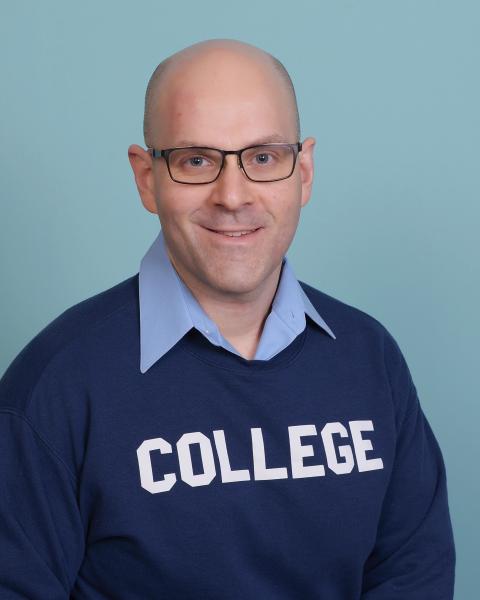
Anthony Penta worked as an engineer before coming to UNH to get his master's in economics. He was interested in buliding skills to use data to drive policy. His career has taken him to Microsoft, Amazon, and to Goldman Sachs, where he currently works.
What exactly do you do day-to-day?
I lead the data science teams for the Goldman Sachs Consumer bank (Marcus by Goldman Sachs)
What has your career path been like? How did you end up where you are?
I worked as an engineer at a startup between undergrad and UNH. I like technical / coding work, but I wanted more skills to use data to drive policy (vs. executing in response to policy set by others). After UNH, I started at Microsoft building the first commercial machine learning based spam filter. The team at Microsoft needed someone between an engineer and an academic researcher - the role today called a data scientist. I stayed at Microsoft for 13 years building ML systems to combat spam, online fraud and malicious software. The breadth of skills learned at UNH to span from overall strategy to technical implementation were essential. I wanted to move to a financial services role to avoid spending my career only in fraud/abuse space and joined Amazon. I joined Amazon as the principal scientist for the Marketplace Lending program - lending over a billion dollars a year to small businesses selling on Amazon. Over 5 years, I became the GM for B2B Credit Systems, managing risk and data science for all of Amazon's business credit programs (Lending, Amazon Business Pay By Invoice and several not yet public programs). Very recently I have decided to join Goldman Sachs to continue my path in financial services.
How did your program and experience at Paul College (WSBE) prepare you for where you are today?
Early in my career, the technical econometrics skills I learned in Professor Karen Conway's class were in frequent use. As I have progressed in my career, I've found the most useful and enduring material to by Professor James Wible's economics of science course. Quine, Popper, Kuhn and others I learned from in the course provide excellent models to understand, manage and drive organizational change.
What person, course, or experience most influenced you while at Paul College? How?
Overall I think Professor Ju-Chin Huang was the most influential. She bet on me for her research, having me collect data and attend a oceanography conference on her behalf. I TA'd some of her classes - my favorite memories at UNH were in my office hours seeing that spark light up in students as they grasped a concept they had not quite understood in class - but were trying so hard to understand. To this day I maintain "office hours" to connect across my team in an ad hoc manner and impart knowledge as Professor Huang modeled for me
What has your time in the "real world" taught you as it pertains to your career?
Avoid "analysis paralysis." It's great to have the technical skills to precisely answer a question with complete data. You generally will not have the luxury of time and complete data. Develop the wisdom to know when you must be precise (and slower) vs. using judgement for speed. Optimize for long-term relationships - it's a small world and you will work with the same people again. Be the person others want to work with, be generous and helpful.
What is one of your fondest memories of UNH?
I graduated from undergrad early, starting in UNH grad school when I was 20. I quickly learned that the graduate student group's official meeting place was in a bar in Durham. The bartender was kind enough to give me a pass so I could participate in the grad student group. New Hampshire and UNH are peculiar, but very inclusive. This is my go-to story for what my UNH experience was like.
Do you have any cool hobbies/side projects you'd like to tell us about?
I've been a competitive bodybuilder over the last ~15 years. A sport well suited to long term planning and data analysis (diet planning, tracking body composition changes).
Any advice on how to transition from college life to 'real' life?
Make sure you understand the goals and "why" of what you are working on. Know your businesses P&L, know near- and long-term goals. Academia or industry. UNH gives you great skills - but you need to make sure you are deploying them on the right tasks. Impact and projects fail more due to failing to build the right things vs. failing to deliver on a well-defined thing. Speed matters - get comfortable exercising judgement with incomplete data. Develop wisdom to know the small percent of time when you must wait for complete data.
Anything else you'd like to tell us about yourself?
I had planned to stay at UNH for an economics Ph.D., but fell in love and left early to get married (and to get a job paying more than a TA!). I'm about to celebrate my 20th anniversary of marriage (and UNH graduation). We have twin boys who are almost 10 years old. Life happens - focus on what is most important in your life and be willing to change your plans.